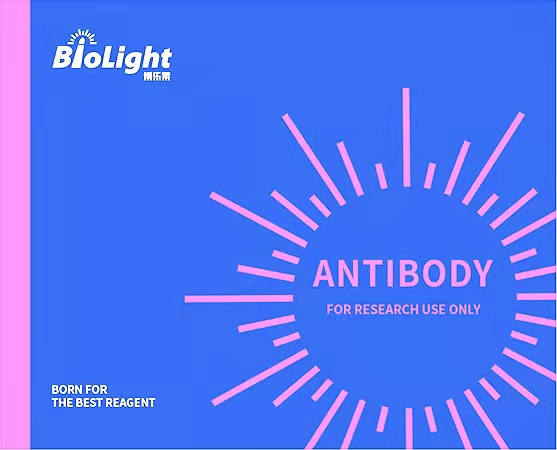
Anti-FABP4 Antibody, Rabbit Polyclonal
产品编号:PA00703HuA10
$ 询价
规格 50uL 100uL 200uL 可选
产品名称:Anti-FABP4 Antibody, Rabbit Polyclonal
经验证的应用:/
交叉反应:/
特异性:human FABP4
免疫原:Recombinant human FABP4 protein, fragment Cys2~Ala132; UniprotKB: P15090
制备方法:Produced in rabbits immunized with human FABP4, and purified by antigen affinity chromatography
来源:Polyclonal Rabbit IgG
纯化:Immunogen affinity purified
缓冲液:Supplied in PBS, 50% glycerol and less than 0.02% sodium azide, PH7.4
偶联物:Unconjugated
状态:Liquid
运输方式:This antibody is shipped as liquid solution at ambient temperature. Upon receipt, store it immediately at the temperature recommended.
储存条件:This antibody can be stored at 2℃-8℃ for one month without detectable loss of activity. Antibody products are stable for twelve months from date of receipt when stored at -20℃ to -80℃. Preservative-Free. Avoid repeated freeze-thaw cycles.
别称:A-FABP, AFABP, AP2, Fatty Acid Binding Protein 4, Adipocyte, Adipocyte Protein 2, Adipocyte-type fatty acid-binding protein
背景信息:FABP4/A-FABP. Fattyacid binding protein-4 (FABP4; also named A- (adipocyte) FABP, ALBP, oradipocyte protein 2 (aP2)) is a member of a large superfamily of lipid bindingproteins that are expressed in a tissue specific manner (1, 5, 6). FABP4 is oneof ten cytoplasmic FABPs that are 14-15 kDa in size and range from 126-140amino acids (aa) in length (1, 2, 3). Although all are highly conserved in theirtertiary structure, there is only modest aa identity between any two members.The FABP family members are subdivided based on organ or tissue type it wasoriginally expressed or identified; liver- (L-FABP), intestine- (I-FABP), heart-(H-FABP), adipocyte- (A-FABP), epidermal- (E-FABP), ileal- (Il-FABP), brain-(B-FABP), myelin- (M-FABP) and testis-FABP (T-FABP) (1). Mouse A- FABP, the product of the FABP4 gene, is a 132 aacytosolic protein that shows a flattened beta -barrel structure generated by aseries of antiparallel beta -strands and two alpha ‑helices (4, 8). FABP4 is able to bind long-chain fatty acids,retinoic acids or eicosanoids with one mol of ligand bound per mole of protein (1, 8, 9). It is suggested that ligands first bind to theoutside of the molecule, and this binding subsequently induces a conformationalchange in the binding protein, resulting in "internalization" of theligand (4, 7, 9). Mouse FABP4 is 92%, 94% and 91% aa identical to human, rat andcanine FABP4, respectively. It also shows 26% and 28% aa identity to mouseL-FABP and I‑FABP, respectively
全称:Fatty acid-binding protein, adipocyte (FABP4)
说明书:待上传

